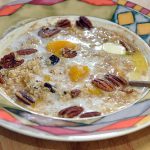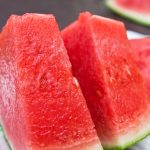General

There is a fuzzy line between an eating disorder, and an obsessive-compulsive disorder (OCD) related to food. People with either disorder obsess about food, but for different reasons. The distinction is that the anxiety accompanying an eating disorder concerns body-image and weight, and the anxiety triggered by an obsessive OCD thought, even one involving food, …
Read More

If you are trying to build healthy eating habits, consider experimenting with oatmeal. Whether you eat it plain or doctor it up, enjoying a bowl of oatmeal is a nutritious, low-fat and filling way to start any day. You can make it every morning and not eat the same bowl of cereal twice in a …
Read More

Not accepting ourselves can keep us from attaining our goals and developing intimate relationships. The way we think of ourselves continuously affects our decisions, emotions and mood. Non-acceptance can eliminate the experience of happiness and joy by canceling out those feelings before they have the opportunity to arise. Does the practice of mindfulness, of focusing …
Read More

We’ve all been told how important exercise is for maintaining our health. However, if we are being treated for or are recovering from an eating disorder, we might have been advised not to do anything resembling strenuous exercise – or we may not have the energy for it. Another Option The good news is that …
Read More

If you are looking for a food that packs a huge nutritional punch and is nearly fat-free, consider enjoying a handful of blueberries or a blueberry smoothie. These berries are ripe for picking or purchasing this time of year, plump and juicy, ready to tickle your taste buds. You know blueberries are special since they …
Read More

When a friend or family member has an eating disorder, getting through the holidays can be challenging. And while you may feel the need to be hypervigilant about this person’s habits during a time when food is the focus, experts recommend backing off and learning ways to respect his or her recovery. Here are some …
Read More

Watermelon, a member of the cucumber, squash, and pumpkin family, is nearly 92 percent water, but the leftover eight percent is both sweet and nutritious. It is the substantial fructose (sugar) content of watermelon that makes it seem like nature’s version of cotton candy, and why it should be eaten in moderation. The sugar intake …
Read More

Trying to balance a healthy diet and exercise routine can be complicated, but there are ways to make these two work together. Although it may seem like athletes have the formula down to a science, even they seek the help of dietitians and health experts to stay on track. Follow these four tips from sports …
Read More

Mindful eating is not being concerned with what you eat; it is about bringing your awareness to how and why you eat. Then, eating is less likely to be a habitual response to certain sensations or triggers. For instance, being aware of the source of our hunger is crucial because some hungers can only be …
Read More

However disordered our eating habits might be, it is important to stay hydrated, especially during warmer weather. For centuries, the Chinese have enjoyed chrysanthemum tea to refresh their body and spirit. Since chrysanthemum chills-out our nervous system and reduces blood pressure, it is a welcome remedy for tensions and stress aggravated by summer’s heat. Health …
Read More
 Eating Disorder Self Test. Take the EAT-26 self test to see if you might have eating disorder symptoms that might require professional evaluation. All answers are confidential.
Eating Disorder Self Test. Take the EAT-26 self test to see if you might have eating disorder symptoms that might require professional evaluation. All answers are confidential.
Find a Treatment Facility Near You
Click on a state below to find eating disorder treatment options that could be right for you.










 Eating Disorder Self Test. Take the EAT-26 self test to see if you might have eating disorder symptoms that might require professional evaluation. All answers are confidential.
Eating Disorder Self Test. Take the EAT-26 self test to see if you might have eating disorder symptoms that might require professional evaluation. All answers are confidential.